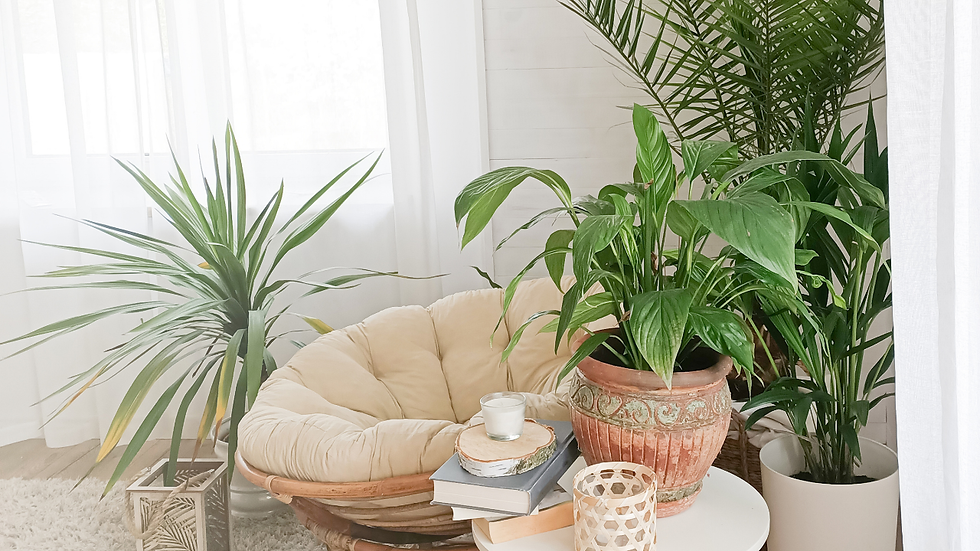In a world where stress and anxiety are becoming increasingly common, finding effective ways to manage our mental health is crucial. Holistic counselling offers a unique and integrative approach to well-being, considering the mind, body, and spirit.

This blog will explore what holistic counselling is, how it differs from traditional counselling, and various techniques you can use at home to alleviate feelings of overwhelm and anxiousness.
What is Holistic Counselling? Holistic counselling is a therapeutic approach that recognizes and treats the individual as a whole. Unlike traditional counselling, which often focuses primarily on the mind and emotional well-being, holistic counselling encompasses the physical, mental, emotional, and spiritual aspects of a person's life. It seeks to understand the interconnectedness of these elements and how they contribute to overall health and well-being.
Key Principles of Holistic Counselling:
Whole-Person Approach: Holistic counsellors view each person as an integrated whole, where mind, body, and spirit are interconnected. They address issues in one area that may affect other areas.
Individualised Therapy: Treatment plans are personalised based on the unique needs and experiences of the individual.
Emphasis on Self-Healing: Clients are empowered to harness their inner resources and strengths to heal and achieve balance.
Use of Multiple Modalities: A variety of therapeutic techniques and practices are used, including talk therapy, bodywork, energy healing, and lifestyle changes.
How Holistic Counselling Differs from Traditional Counselling:
1. Scope of Treatment:
Traditional Counselling: Primarily focuses on mental and emotional health, often using cognitive-behavioural therapy (CBT) or psychodynamic approaches.
Holistic Counselling: Expands the focus to include physical health, lifestyle, spiritual beliefs, and overall well-being.
2. Therapeutic Techniques:
Traditional Counselling: Relies heavily on verbal communication and talk therapy techniques.
Holistic Counselling: Utilises a wide range of techniques, including mindfulness, meditation, breathwork, bodywork, nutrition, and energy healing.
3. Goal Setting:
Traditional Counselling: Often aims to address and resolve specific psychological issues or disorders.
Holistic Counselling: Aims to achieve overall balance and harmony in life, addressing root causes rather than just symptoms.
Techniques to Manage Overwhelm and Anxiousness at Home:
1. Breathwork: Breathwork involves conscious control of breathing patterns to influence mental, emotional, and physical states. Here are a few techniques to try:
Deep Breathing: Take slow, deep breaths, inhaling through the nose and exhaling through the mouth. This helps activate the parasympathetic nervous system, promoting relaxation.
Box Breathing: Inhale for a count of four, hold for four, exhale for four, and hold again for four. This technique can calm the mind and reduce stress.
4-7-8 Breathing: Inhale for four seconds, hold for seven seconds, and exhale for eight seconds. This method is particularly effective for reducing anxiety and promoting sleep.
2. Aromatherapy: Aromatherapy uses essential oils to promote physical and psychological well-being. Some oils have calming and soothing properties that can help manage anxiety and overwhelm:
Lavender: Known for its relaxing effects, lavender can help reduce stress and promote restful sleep. Use it in a diffuser or add a few drops to a warm bath.
Lemon: This citrus oil can uplift the mood and help to alleviate feelings of anxiety.
Peppermint: Peppermint oil is renowned for its invigorating properties, capable of uplifting mood and boosting energy levels, making it a perfect natural remedy for combating fatigue and promoting mental clarity.
3. Mindfulness and Meditation: Practising mindfulness and meditation can help you stay grounded and manage stress more effectively. Here are a few practices to incorporate into your daily routine:
Mindful Breathing: Focus on your breath, observing each inhale and exhale without trying to change it. This practice can help you stay present and reduce anxiety.
Body Scan Meditation: Lie down and bring your attention to different parts of your body, starting from your toes and moving up to your head. This can help release tension and promote relaxation.
Guided Imagery: Visualise a peaceful scene or experience in your mind. This can help distract from anxious thoughts and promote a sense of calm.
4. Journaling: Writing down your thoughts and feelings can be a powerful way to process emotions and gain clarity. Here are some journaling prompts to help you get started:
Gratitude Journaling: Write down three things you are grateful for each day. This practice can shift your focus from stressors to positive aspects of your life.
Emotional Release: Write about what is causing you anxiety or overwhelm. This can help you identify and release pent-up emotions.
Goal Setting: Outline your short-term and long-term goals. This can provide a sense of direction and purpose, reducing feelings of helplessness.
5. Physical Activity: Regular physical activity can help reduce stress and improve mood by releasing endorphins. Consider incorporating the following activities into your routine:
Yoga: Combines physical postures, breathwork, and meditation to promote overall well-being. Yoga can help reduce stress, improve flexibility, and increase strength.
Walking: A simple walk in nature can help clear your mind and reduce anxiety. Aim for at least 30 minutes a day.
Dancing: Put on your favourite music and dance. This can be a fun way to release tension and improve your mood.
Holistic counselling offers a comprehensive approach to well-being, addressing the interconnectedness of mind, body, and spirit.
By understanding the principles of holistic counselling and incorporating techniques like breathwork, aromatherapy, mindfulness, journaling, and physical activity into your daily routine, you can effectively manage feelings of overwhelm and anxiety. Embrace these holistic practices to achieve a balanced and harmonious life.
#HolisticCounselling #MentalHealth #WellBeing #MindBodySpirit #AnxietyRelief #NaturalHealing #Breathwork #Aromatherapy #Mindfulness #Meditation #Journaling #SelfCare #HolisticHealth #EmotionalWellness #StressManagement #HealthAndWellness #NaturalTherapies #HolisticHealing #bewholesomeau

Comments